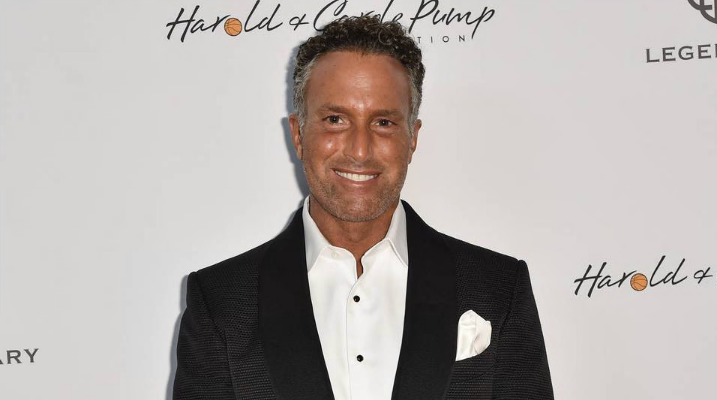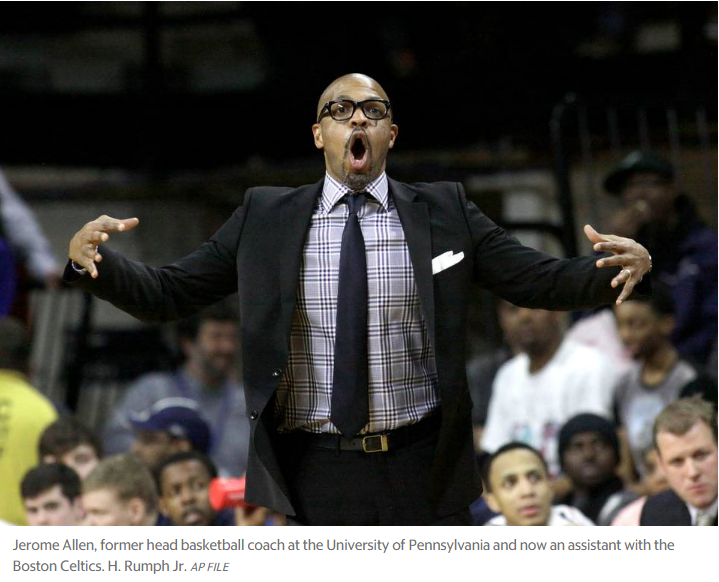Jury will decide fate of health executive in $1 billion Medicare fraud trial

BY JAY WEAVER
MARCH 29, 2019 05:24 PM

Philip Esformes is the only defendant standing trial in the nation’s biggest Medicare fraud case, but the wealthy Miami Beach executive has been portrayed as if there were two of him — one dirty, one clean.
According to Justice Department prosecutors, Esformes ran his Miami-Dade chain of skilled-nursing and assisted-living facilities like a crime boss, billing close to $1 billion to the taxpayer-funded Medicare and Medicaid program for dubious services that patients largely didn’t need or even receive.
Prosecutors put on a series of convicted healthcare associates, a former hospital director and an ex-Ivy League basketball coach to testify about how Esformes paid them and various doctors hundreds of thousands of dollars in bribes to buy and sell patients as well as to get his son into the University of Pennsylvania.
“Philip Esformes lied for money,” Justice Department lawyer Allan Medina said in a packed Miami federal courtroom during closing arguments Friday. “He cheated. He tried to take the easy way out. He tried to game the system everywhere he turned. … In the end, $38 million filled his pockets as a result of the lies and the games he played.”
But Esformes’ defense team of high-priced lawyers also called a lineup of witnesses at trial, such as nurses, therapists and administrators who once worked for him. They testified about his hands-on management style, generosity of time and money, and devotion to his family and Jewish faith. They argued that his patients, whether coming out of hospital surgery or suffering from mental illness, received the care they needed in his facilities under Medicare and Medicaid coverage.
His principal defense lawyer, Roy Black, described Esformes as an “obsessive” businessman who never paid a single doctor for referring Medicare patients to his chain of facilities and never sold any of his patients to healthcare operators to bilk the federal insurance program for the elderly, disabled and poor.
Black said two healthcare associates working undercover for the feds recorded a series of conversations with Esformes, and he never talked about fleecing the federal program. “In those 40 hours … they couldn’t get one piece of evidence that Philip Esformes was guilty of Medicare and Medicaid fraud,” Black told jurors, adding there was “nothing about paying doctors” and “nothing about kickbacks.”
Esformes’ fate will soon be in the hands of 12 Miami federal jurors, who received jury instructions from U.S. District Judge Robert Scola before closing arguments started Friday. Starting Monday, jurors must decide whether they accept the Justice Department’s portrayal of Esformes as a corrupt “mastermind” who bought and sold patients, or the defense’s version of him as a hard-working businessman who did everything by the book.
Jurors will have to weigh two months’ worth of evidence — undercover recordings, financial documents, text messages and testimony from convicted associates — in a case built mostly upon conspiracy charges involving healthcare fraud, paying and receiving kickbacks, money laundering, bribery and obstruction of justice.
Esformes, 50, who was arrested in July 2016 and has been held without bond at the federal detention center, could spend the rest of his life in prison or regain his liberty.
Even by the standards of Miami, the reputed capital of healthcare fraud in America, Esformes’ case sticks out for its sheer size. Esformes’ healthcare network was paid about $500 million by the Medicare program between 2010 and 2016, with the executive pocketing $38 million himself, a finance expert for the prosecution testified at trial. Before his assets were frozen, the Chicago transplant owned dozens of local healthcare businesses that billed $1 billion to Medicare and Medicaid over the past decade. Esformes, who went through a messy divorce, also acquired pricey real estate in Miami Beach and drove a Ferrari sports car.
According to the Justice Department’s indictment, Esformes exploited his network of 16 Miami-Dade skilled-nursing and ALFs to fleece the Medicare and Medicaid program by filing false claims for services that were not necessary or not provided over the decade leading up to his arrest.
Larkin Hospital in South Miami referred some of the thousands of Medicare patients to Esformes’ network as a result of bribery payments that he made to physicians and other medical professionals, according to trial evidence.
Esformes is also accused of referring his own network of patients to convicted healthcare-fraud offenders, including Guillermo and Gabriel Delgado, who are serving prison time. The brothers, both licensed nurses, admitted swindling Medicare for mental-health, prescription-drug, and home-healthcare services, and they ultimately helped federal investigators target the Miami Beach executive.
Both testified that they paid some kickbacks for Esformes’ patients by disguising them as payments for escort services for Esformes as well as related travel and hotel expenses, including at the Ritz-Carlton in Orlando.
Gabriel Delgado, who described himself as a right-hand man to Esformes, testified that he turned on Esformes after the healthcare mogul suggested he kill himself rather than face charges together.
Esformes was also charged with obstructing justice because prosecutors say he plotted in 2015 with the Delgado brothers to help one of them leave Miami for Israel to avoid trial. Unbeknown to Esformes, the co-conspirators, who had already been charged with sharing Medicare patients with him in the alleged kickback scheme, recorded a two-hour conversation with him before Esformes was indicted the following year. The secret recording was carried out as part of the brothers’ cooperation deal with the feds to plead guilty.
Guillermo Delgado also testified that lawyer Thomas Rebull, now a Miami-Dade circuit judge, helped him and his business partner, Nelson Salazar, prepare fraudulent paperwork to hide cash transactions for their healthcare company. Rebull, who is Salazar’s stepbrother, testified at Esformes’ trial that he did provide legal advice to help set up a home healthcare agency, Nursing Unlimited, but denied Delgado’s claims about falsifying paperwork.
During his testimony, Salazar said he and his partners initially delivered wads of cash to Esformes in exchange for access to his Medicare patients but later hid the kickbacks in inflated rents for a rundown assisted-living facility in Little Havana that Esformes leased to them. Like the Delgado brothers, Salazar pleaded guilty and cooperated with federal authorities.
Esformes is also accused of paying bribes through Gabriel Delgado to a state healthcare administrator, Bertha Blanco, who also pleaded guilty so that he could receive inspection reports in advance for unannounced visits to his facilities in Miami-Dade.
During closing arguments, Black said Esformes never received kickbacks of any kind from the Delgado brothers and never paid bribes to obtain state inspection reports.
Perhaps the most riveting testimony at Esformes’ trial came from a former University of Pennsylvania basketball coach, Jerome Allen, who got to know the businessman through a fellow coach who trained his son. He testified that Esformes paid him about $300,000 in cash bribes and wire transfers to place his son, Morris, on a priority list as a “recruited basketball player” so he could be accepted to Penn and its exclusive Wharton School.
Allen, now an assistant basketball coach with the Boston Celtics, said Morris Esformes was not cut out for Division I basketball but he still put him on a shortlist of five recruits to get him into the Ivy League school. Morris Esformes didn’t make the team after entering in the fall of 2015 but he is expected to graduate this spring.

Allen, who was fired in March 2015 after a string of losing seasons before Esformes’ son started at Penn, pleaded guilty to a bribery-related money-laundering charge. He will be sentenced in April.
Justice Department officials — along with South Florida’s U.S. attorney, the FBI, and Health and Human Services agents — described the Esformes prosecution as the nation’s biggest Medicare fraud case.
Esformes stood trial alone because all of his co-conspirators have already pleaded guilty, including a physician’s assistant, Arnaldo Carmouze, and a former Larkin Community Hospital outpatient director, Odette Barcha. In January, both admitted that they recycled Medicare patients through the hospital and Esformes’ network of nursing homes and ALFs in an elaborate bribery scheme that prosecutors say was orchestrated by the healthcare executive.
Carmouze, 59, pleaded guilty to conspiring to defraud Medicare by accepting bribes for making patient referrals to Larkin and Esformes’ healthcare facilities. Barcha, 52, pleaded guilty to conspiring to pay bribes to physicians to refer patients to Larkin and receiving kickbacks herself to move patients into Esformes’ facilities.
In turn, both avoided the risk of trial and much longer prison sentences. Carmouze faces eight years and Barcha three and a half years in prison.
